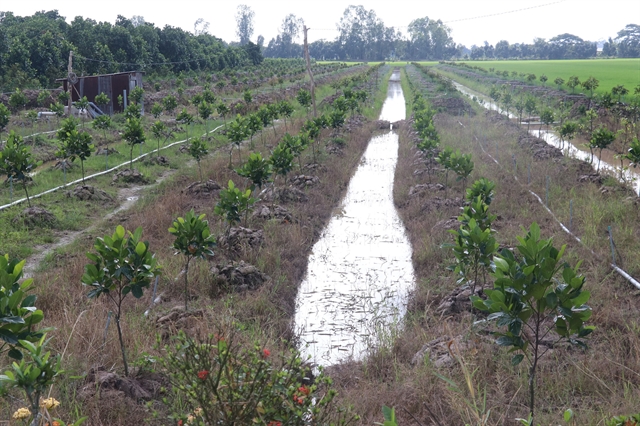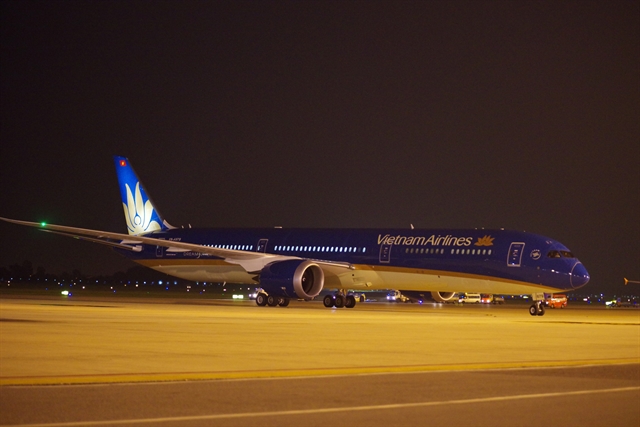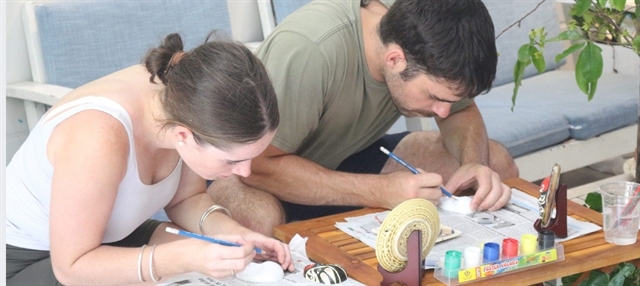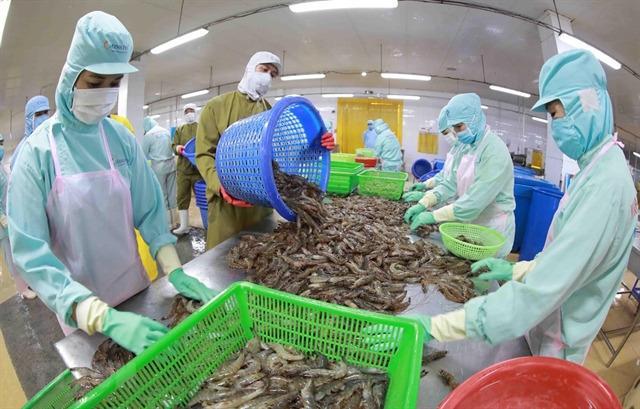

Nguyễn Đức Huỳnh, a 32-year-old patient from HCM City who suffers from chronic kidney failure, is no longer worried about travelling a long distance to the district hospital early in the morning to receive hemodialysis, a treatment for the disease.
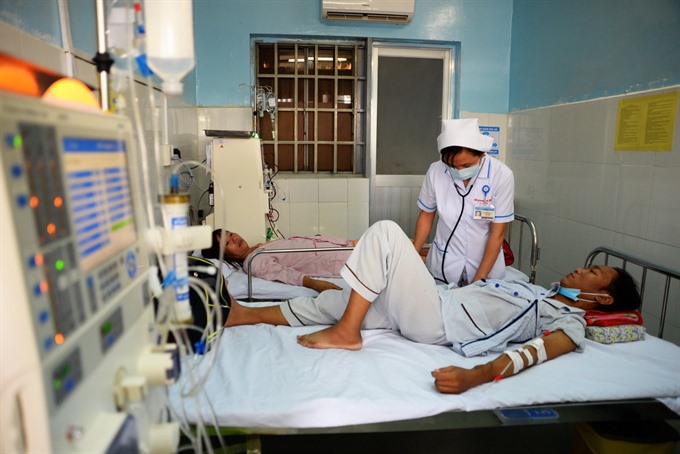 |
| A doctor at Bình Chiểu Ward medical station in HCM City provides health examination for patients. The medical station receives some 150 patients every day. – Photo tuoitre.vn |
HCM CITY – Nguyễn Đức Huỳnh, a 32-year-old patient from HCM City who suffers from chronic kidney failure, is no longer worried about travelling a long distance to the district hospital early in the morning to receive hemodialysis, a treatment for the disease.
Local patients like Huỳnh can now enjoy high-quality health check-ups at Bình Chiểu Ward medical station, thanks to a pilot project to strengthen communal-level medical facilities launched by the city’s Thủ Đức Hospital in July.
"I often had to get up as early as 4:30am so that I could arrive at Thủ Đức Hospital in time for treatment" he said, adding that he went there three times a week.
" The service helped save time and money travelling to the district hospital," he said, having been diagnosed with the disease in 2008.
Quách Thị Hoài, a resident from Thủ Đức District, said she felt secure with the service at Hiệp Bình Chánh Ward medical station as it was equipped with advanced equipment and medical staff from the district hospital.
Nguyễn Minh Quân, director of Thủ Đức Hospital, said the hospital has decided to expand the service at local levels in a bid to reduce traveling and treatment costs for patients as well as ease the load at the hospital.
"Most patients suffering from chronic kidney failure are poor people who have difficulties travelling due to their poor health. Thus, the district has installed two kidney dialysis machines in June to make it convenient for them," he said.
Every day the hospital receives 5,000 patients, much more than the hospital’s capacity, he said.
It plans to turn all 12 health centres in the district into satellite ones in 2017, Quân said.
Nguyễn Văn Phúc, head of Bình Chiểu Ward medical station, said more and more people are visiting the station after its innovation.
"About 150 patients come to the centre for health checks ups and treatment every day, compared with 20 in the past," he said, adding that over 400 patients with chronic kidney failure were being treated at the station a month.
"Thanks to the installation of modern facilities, we could perform advanced techniques on patients instead of transferring them to the central hospital like we did," he said.
He also said the centre was capable of check-ups and treatment in various major fields, from internal medicine, surgery, pediatrics, obstetrics to ear-nose-throat and teeth.
Besides Thủ Đức District, the strengthened communal-level medical facilities project is also being applied at HCM City’s District 2.
At present, the satellite health service has been deployed to medical stations at Thạch Mỹ Lợi, Bình Khánh and Thảo Điền, aiming at helping the number of patients who use local medical facilities.
Tăng Chí Thượng, deputy director of HCM City’ Health Department said while general and specialised hospitals in the city were overburdened with patients because the high number of people being admitted from other provinces, grassroots-level hospitals didn’t operate at full capacity.
As such, the City’ health department has decided to equip communal-level health stations with modern facilities and high-skilled doctors to reduce the load for hospitals at higher levels.
Hundreds of doctors have been sent to communal-level health stations in Thủ Đức District and District 2.
About 1,000 doctors would be dispatched from district-level to grassroots-level by the end of 2018 and the number would rise to 2,000 by 2020, Thượng said.
The department has also set up treatment plans for various fields with the help of doctors with professional qualifications from district-level hospitals to ensure the feasibility of the project.
In addition to upgrading key health centres at highly-populated areas and those far away from the city centre, HCM City authorities plan to invite private investors to pour their money into these facilities.
Nguyễn Tấn Bình, director of HCM City’s Health Department said a number of investors wanted to open general health clinics at six health stations in District 3.
"The fact that most health stations in the city’s central districts implement health prevention and vaccinations causes waste in both facilities and human resources. The Department will pilot the lending of health stations to enterprises to take advantage of existing facilities and help improve health workers’ income," he said.
He also said local residents would benefit from the pilot project as they would have to pay lower costs in comparison with other clinics.
The project would be implemented at district 3 first. Once it brought about positive results, the departments would expand the model to other districts, he said. – VNS

